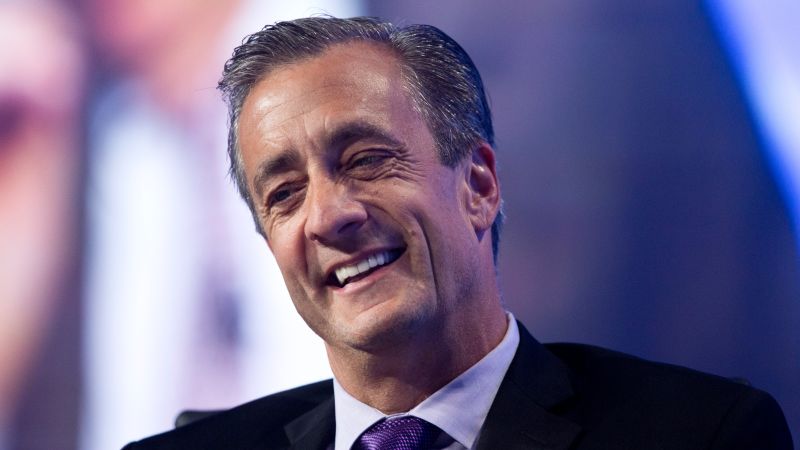On a significant day for the United States Postal Service (USPS), the Board of Governors announced the appointment of David Steiner as the new postmaster general. This decision, revealed on Friday, has raised eyebrows amid ongoing discussions about the potential privatization of the independent agency under the Trump administration. Steiner joins the USPS from FedEx, where he has been a board member, leading many to question the implications of his new role within the context of competition and corporate interests.
With considerable experience in leadership roles, including a notable tenure at Waste Management, Steiner comes into the USPS with a firm commitment to uphold the agency’s independence. Upon his appointment, he expressed his admiration for the USPS, stating, “I deeply admire the public service and business mission of this amazing institution.” He made it clear that he intends to maintain its role as an independent establishment of the executive branch. Given the USPS’s crucial function, especially during challenging times like the COVID-19 pandemic, Steiner’s commitment signals a promise to navigate the agency’s complexities thoughtfully.
Steiner’s appointment follows the unexpected resignation of Louis DeJoy, who led the USPS for five years. DeJoy stepped down in late March, shortly after instructing the board to search for his successor. His tenure was marked by significant challenges, including navigating the organization through the pandemic and overseeing the unprecedented rise in mail-in ballots during critical election periods. Under DeJoy’s leadership, the USPS faced financial constraints that complicated its operations and growth.
However, Steiner’s arrival comes with immediate scrutiny. Rep. Gerry Connolly, a senior Democrat on the House Oversight Committee, has voiced strong concerns regarding Steiner’s previous affiliation with FedEx, deeming it a conflict of interest. He described the move as an attempt by President Trump to place a loyalist at the helm of the agency, thereby threatening its independence. The scrutiny doesn’t stop there; representatives Connolly and Kweisi Mfume have expressed intentions to closely monitor Steiner’s actions in the coming months.
Democratic leaders have underscored the importance of a fair and impartial postal service that functions without any political influence. Their statements encapsulate the public’s expectations for the USPS to operate in the best interest of the American people rather than the demands of any administration that may wish to undermine its integrity. They remain hopeful that Steiner will prioritize the USPS’s mission above potentially controversial directives from the administration.
On the labor front, Steiner’s upcoming leadership will not be without its challenges. The National Association of Letter Carriers (NALC) issued statements highlighting their concerns about his dual role as a FedEx board member and the potential implications for USPS’s direction. The NALC president, Brian Renfroe, emphasized that Steiner’s appointment could indicate a troubling trend toward aligning the USPS more closely with corporate interests, which may not align with the agency’s foundational public service mission.
While Steiner prepares to officially step into his role, he has announced his intention to engage proactively with unions representing postal workers. Nonetheless, the road ahead appears fraught with complex relations and challenges, as labor unions seek to ensure their members’ rights and interests are protected against corporate influence.
Notably, President Trump has indicated a desire for profound changes within USPS, which has long been in a state of reorganization. He proposed new oversight structures, suggesting Secretary of Commerce Howard Lutnick could take charge of the agency, in contrast to its current governance by its board of governors. Trump has also hinted at a possible merger involving USPS, raising fears about future privatization efforts echoed by influential figures like Elon Musk.
The transition of power at USPS highlights a pivotal moment in American postal service history. With escalating pressures from external stakeholders and a landscape that is increasingly influenced by corporate interests, the future of the USPS hangs in the balance. Steiner’s leadership will undoubtedly be vital in determining whether the agency can navigate these challenges while maintaining its core mission of serving the public effectively and fairly. The upcoming years will be critical as the USPS grapples with these intricate dynamics while looking to balance operational efficiency with its public obligations.



